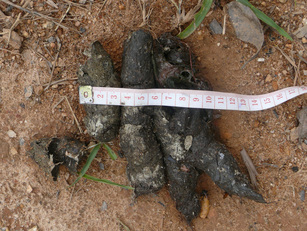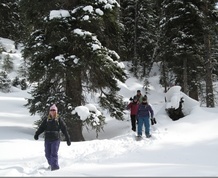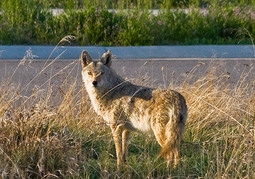Coyote Scat Collections – Remote Locations in North America
Volunteer hikers/backpackers will collect scat samples for future genetic analyses. Collecting one sample and associated geo-habitat data may take about 2-5 minutes, depending on the size of the party. Additionally, only a few grams are necessary to extract a good amount of DNA, so the samples should not impose a cumulative weight burden on the hiker.
How will this data be used?
The scats will be processed for genetic analyses, first for species ID, second for individual ID. Once enough individuals of one species are identified, population-level analyses will be conducted. These include analyses of population structure, differentiation, inbreeding, landscape connectivity, etc.
To Participate in this study, please tell us about your expedition.





